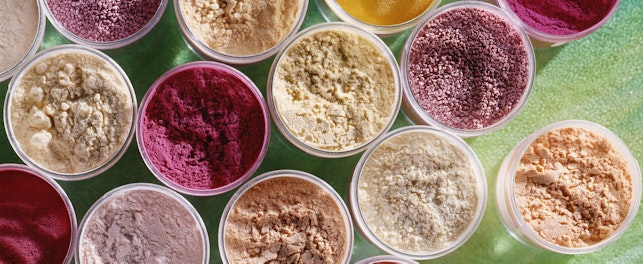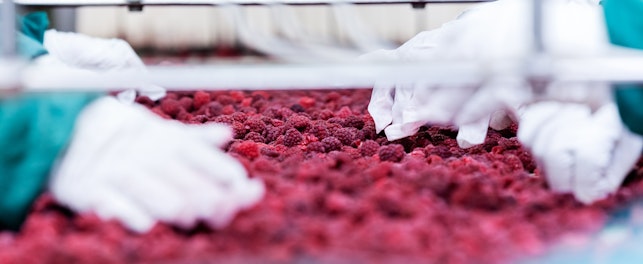Coffee is the world’s second most popular beverage behind water.
Unsurprisingly, the coffee industry is therefore big business, with the global market currently worth USD 465.9 billion. However, as with many large industries, the economic benefits at stake have led to fraudulent players trying to scam consumers.
This article examines why coffee fraud is on the rise before detailing how SGS’s solution allows global players to detect – and prevent – coffee fraud.
So, what’s the issue?
Around 124 species of coffee have been identified in total, but they’re usually lumped into one of two categories: Arabica and Robusta.
Arabica is harder to grow and is generally considered to be of higher quality. Due to its more palatable taste and widespread reputation, consumers are willing to pay around 20-25% more for Arabica than for Robusta. This means that Arabica producers have been quick to label their products “100% Arabica,” distinguishing them from Robusta alternatives and justifying their higher prices.
Robusta, on the other hand, has a more bitter taste and is considered to be of lower quality, though it’s easier to grow, higher yielding, and is more resistant to pests, diseases, and challenging climates.
Unfortunately, the economic benefits of selling Arabica versus Robusta have opened the door to coffee fraud.
The phrase “100% Arabica” does not in and of itself demonstrate a coffee’s quality – it is simply stating that the contents are Arabica beans as opposed to Robusta beans. Worse still, however, these claims are often inaccurate.
A 2018 UK study conducted by the Quadram Institute found that 10% of coffees labeled “100% Arabica” contained significant levels of Robusta. The researchers tested coffees from 60 different roasting companies spread across 11 of the world’s main coffee production regions, discovering more than 1% Robusta in eight of the coffees – and “significant” levels of Robusta in six of the coffees.
One percent might not sound like much. However, this is generally considered to be the accepted cut-off point between trace (and accidental) contamination and levels that are indicative of deliberately fraudulent activity. Having reviewed these results, the Institute estimates that anywhere from 5-20% of all “100% Arabica” coffee will in fact be fraudulent – in other words, that it will contain Robusta.
How can coffee fraud be prevented?
Identifying Arabica versus Robusta coffee is no easy task. Arabica beans are clearly bigger than Robusta beans, but once the beans have been roasted and ground up, visual observations alone are of little use.
There are a number of analytical techniques that can be used to discern the differences between Arabica and Robusta. For instance, vibrational techniques like mid-infrared (MIRS) and near-infrared (NIRS) spectroscopies can provide direct, non-destructive and rapid measurements.
Unfortunately, they also provide overlapping signals – meaning they have to be used in combination with multivariate chemometric tools. Chemometrics, described as “the art of extracting chemically relevant information from data produced in experiments,” lies at the heart of chemistry and applied multivariate statistics. It allows for accurate quantification when faced with interferences, making it eminently suitable for this task.
But this isn't the only option. SGS has developed its own innovative approach, allowing organizations to easily and quickly understand the physical make-up of their coffee.
How SGS Helps You Identify – and Prevent – Coffee Fraud
SGS has developed an innovative new DNA-based test to distinguish and quantify Coffea arabica and Coffea canephora (i.e. Robusta).
This test comprises:
- A specific DNA extraction method validated internally
- An advanced fragment analysis that discriminates between species and reveals their relative amount in a sample
Our test finds contamination from as low as 1% in alignment with the above-stated threshold levels.
The test is suitable for the following coffee samples:
- Green beans
- Roasted beans
- Roasted and ground beans
- Capsules or pods
Make Coffee Fraud a Thing of the Past
You might be surprised at just how prevalent coffee fraud is nowadays. However, this does not mean that your organization has to suffer the consequences of unwittingly doing business with fraudulent market players.
With SGS’s innovative detection solution and industry-leading experts, you can confidently and quickly identify the make-up of your coffee. This will then allow you to demonstrate that your claim regarding the type of coffee that you’re selling is trustworthy. To find out more about this service, get in touch today.
For more information, please contact:
Cristina Barbosa, PhD
SGS Competence Centre for Molecular Biology (CCMB) Manager
SGS Molecular SA
Lisbon, Portugal
t: +351 910 804 729



